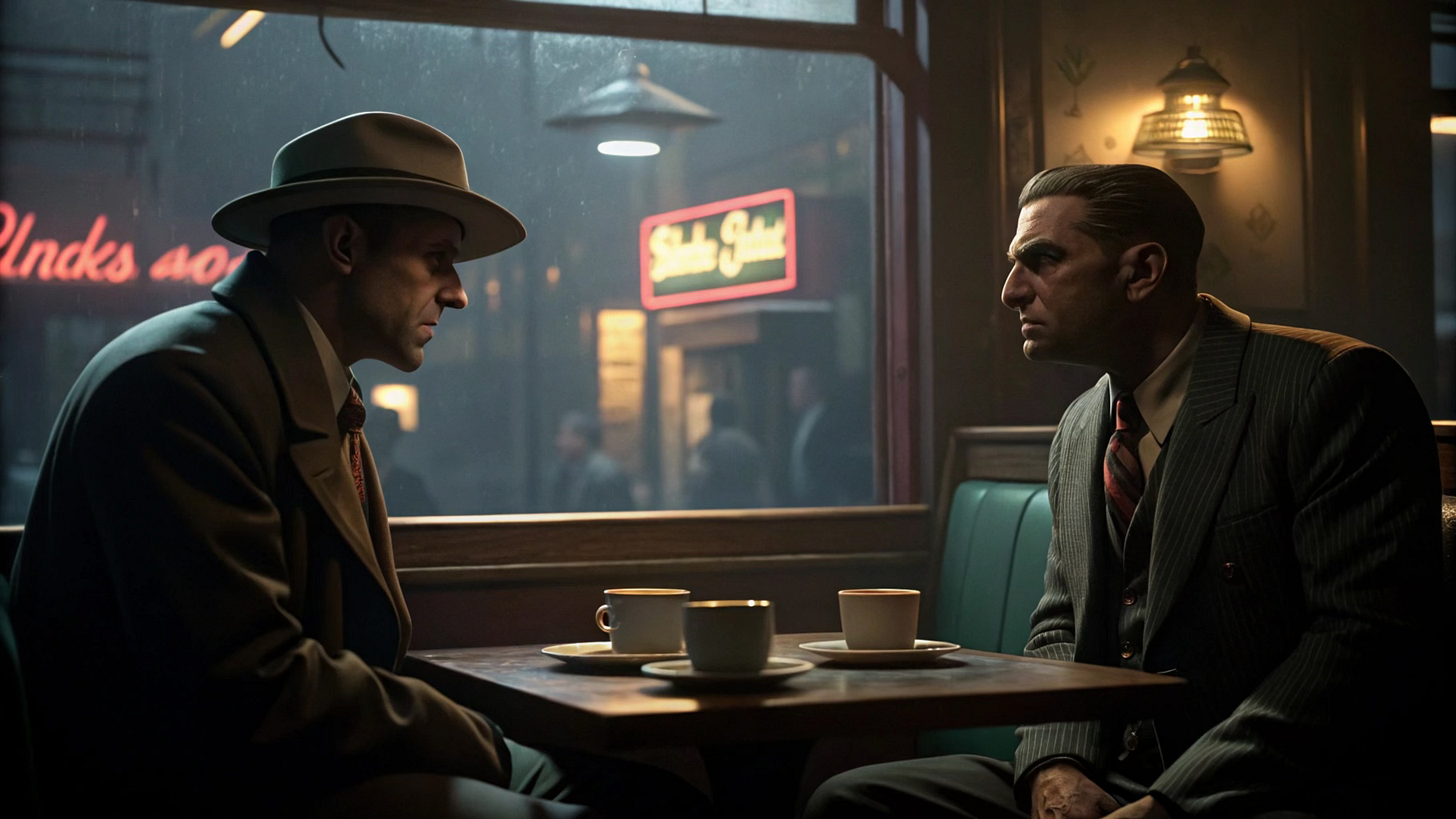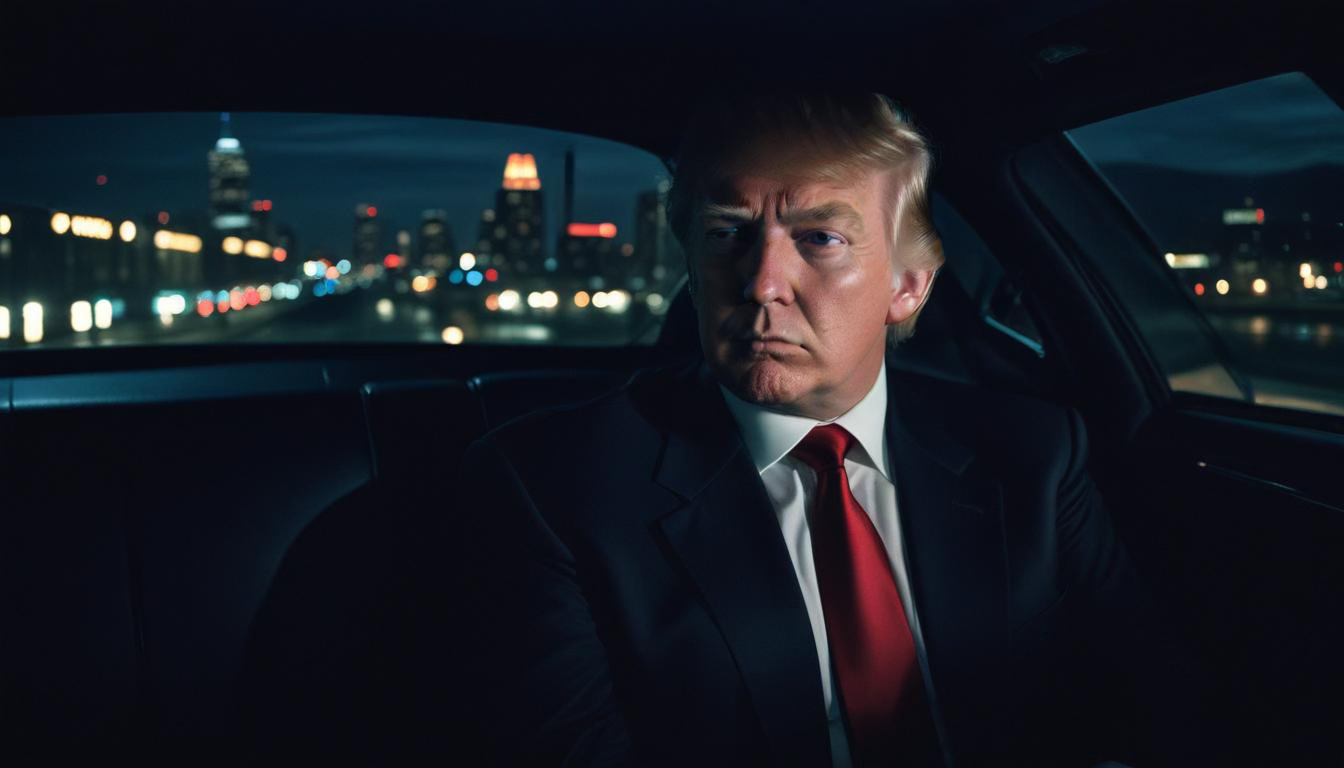Mobsters vs. Politicians: Who’s More Ethical?
Meet YouTube Content Creators Michael Franzese & Sammy "The Bull" Gravano
One day you’re ranting about lizard people in your mom’s basement, the next you’ve got a million subscribers and a sponsorship deal with an energy drink that tastes like battery acid. Welcome to YouTube, where the algorithm is king, mediocrity is monetized, and anyone with a half-baked opinion and a ring light can become an overnight sensation. It’s a circus, a gold rush, and a digital freak show all rolled into one—and the crowd just keeps growing.
Gone are the days when fame required talent, connections, or a shred of dignity. YouTube has something for everyone, even the shadows of organized crime have found way to the social media spotlight.
Michael Franzese, once a Colombo crime family caporegime, now commands over 1.25 million subscribers. His channel delves into mob movie critiques, prison tales, and the intricacies of Mafia life. Notably, he has used his platform to voice political opinions, aligning with Trump during election season.
Sammy “The Bull” Gravano, the former Gambino underboss and notorious hitman for John Gotti, shares his experiences with hundreds of thousands of followers. His “Our Thing” podcast recounts infamous hits and personal Mafia anecdotes, also reflecting his support for Trump.
Here, he remembers his first contract.
These narratives, while captivating, raise questions about the glorification of criminal figures in American culture. Their detailed recounting of past crimes, often beyond the statute of limitations, occurs without legal repercussions. This phenomenon mirrors the longstanding American fascination with outlaws, from Wild West cowboys to modern-day mobsters.
For those intrigued by these firsthand accounts, Franzese and Gravano’s discussions offer a unique perspective on organized crime. Their content provides a window into a world often romanticized in films such as The Godfather and Goodfellas.
The American fascination with mafia stories, as seen with the enduring popularity of The Sopranos, stems from a blend of cultural, psychological, and cinematic factors. Mafia narratives often explore universal themes—power, loyalty, family, betrayal—that resonate deeply with audiences. The mafia’s structure mimics a family, and the loyalty within that group, alongside the willingness to go to extreme lengths for “the family,” appeals to a sense of belonging and loyalty, albeit in an exaggerated form.
Furthermore, the mafia represents the American Dream’s darker side: individuals pursuing success, wealth, and respect, often in defiance of the law and traditional societal constraints. This tension between ambition and morality mirrors broader American ideals and conflicts. Mafia stories also indulge a certain escapism, offering viewers a glimpse into a dangerous, secretive world ruled by its own codes, far removed from ordinary life.
Finally, from a cinematic perspective, the larger-than-life characters, dramatic storytelling, and high-stakes tension in mafia films provide compelling entertainment, in any medium.
Donald Trump runs his family—and now the country—as though he’s the head of a crime family. The parallels are glaring: the dynastic obsession with loyalty, the transactional relationships, the intimidation tactics, and the unrelenting focus on personal gain at the expense of the greater good. With a growing list of alleged crimes, ranging from financial improprieties to potential interference in democratic processes, and his mob-like manner of speaking—peppered with veiled threats, bravado, and “us vs. them” rhetoric—Trump fits the mold of a modern mob boss.
His leadership style mirrors the hallmarks of organized crime: consolidate power, surround yourself with enablers, punish dissenters, and maintain a facade of invincibility. In his world, loyalty to “the boss” supersedes loyalty to the country or the truth. Former associates, turned whistleblowers, are met with vicious personal attacks and attempts at character assassination—a classic tactic of a crime syndicate aiming to silence defectors and instill fear in others who might break ranks.
Frankly, I’d take real gangsters over Trump any day. At least traditional mobsters—though on the wrong side of the law—often operate under a code of conduct, a sense of moral judgment that defines their loyalty and principles. While their actions might be criminal, there’s often a line they won’t cross: respect for family, honor, or the rules of their own subculture. Trump, by contrast, lacks even a semblance of that code. His decisions and actions suggest he operates with no moral compass, using his position not to uphold any greater purpose but to protect his own interests, shield his inner circle, and inflate his personal brand.
Whether it’s his blatant disregard for democratic norms, his cavalier approach to the truth, or his willingness to weaponize the power of the presidency against anyone who dares to oppose him, Trump doesn’t just blur the line between politics and crime—he stomps all over it. He has turned the presidency into a stage for his personal vendettas and pursuits, treating the country as if it exists to serve his ego and his empire, much like a mob boss treats his neighborhood as his personal fiefdom.
In the end, Trump’s actions don’t just undermine the office of the presidency; they erode the fundamental trust and principles that bind a democratic society. Unlike the calculated cunning of mobsters who live by a code of honor within their world of crime, Trump appears driven by a singular goal: his own survival and glorification, even at the expense of the country he’s supposed to lead. It’s a dangerous, reckless approach to leadership that leaves a trail of chaos in its wake.
On Monday, please join me for “The Death of Art, the Birth of Shadows,” the story of Pier Paolo Pasolini (1922–1975), an influential Italian filmmaker, poet, writer, and intellectual known for his provocative and politically charged works. Despite its extreme content, his final film, Salò, remains an enduring and divisive piece of cinema, reflecting Pasolini’s fearless approach to art and his uncompromising critique of power and corruption.
And next Friday, “Albert Ayler and the Sound of Revolution,” with rare video of Ayler’s performance at the Berlin Jazz Festival.
Until then, let your conscience be your guide.







Oh, yes, DT is a mobster, no doubt in my mind, and mob culture has always been fascinating. A small quibble, though. The opera of the Godfather Trilogy does romanticize characters who were monstrous to the core, and though that horror isn't really evident until you've lived with those movies, it is there. It's hard to break through the gloss. Goodfellas, on the other hand seems far from romantic to me. These guys are not only monstrous, they're involved in the true pettiness of racketeering, and what ever perks of membership that may exist are pretty tawdry. Nobody is rubbing shoulders with the Princes of the Church. I won't argue which is the better movie. As far as the question in your title - "We're both involved in the same hypocrisy, Senator..." Thanks for writing.
The old saying, "sex sells" relates to our current cultural crisis. Meaning not healthy sex but prurience, that sin is of a type with the sin of lawlessness which is and has been rife in our culture for centuries. Colonials wanted land that native tribes believed was nobody's to own. Planters wanted slaves to work under the threat of punishment of various kinds. Corporate magnates wanted giant profits with no regard for justice for customers, workers and the environment. Power madness is not unique to our history, but I'm trying to stick to the subject of American culture. The "glorification" of criminals is a theme common to the glamorizing of outlaws and " rugged" individualists who triumph in the various popular arts. Even when a criminal is brought to justice in some movies, he is fascinating to watch. As with Milton's Satan in *Paradise Lost*, the snake has the best lines, shines with a sheen of power and defiance. Freudians would recognize such antiheroes as "id figures" who can get away with outrageous misbehavior. Some girls (and boys) are infatuated with "bad boys." The false glamor of Trump continues despite his loss of looks. As with phony pro wrestling, he does things some people only fantasize doing. It seems to be taking a very long time for the mass of voters and politicians to mature and choose virtue for the common good over vice for the oligarchs and those who lionize them. (Are networks still showing the old show *Lifestyles of the Rich and Famous*? Maybe not, but several current shows glamorize extravagance.)